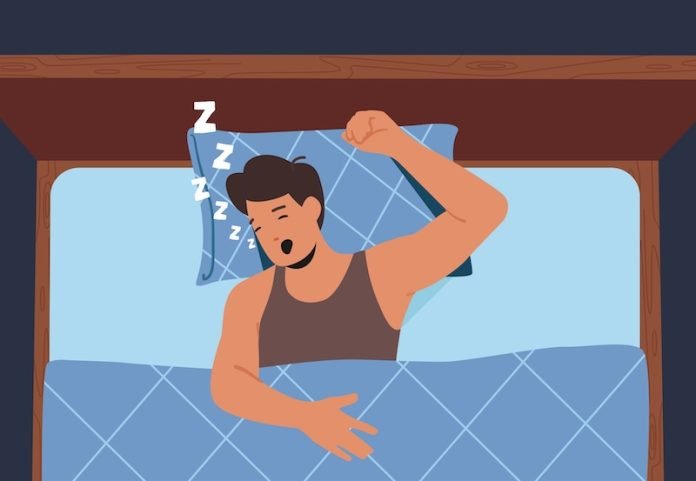
Sleep apnea and high blood pressure are two health issues that often go hand-in-hand, impacting millions of people worldwide.
While they may seem like separate concerns, growing research suggests a close connection that can have significant implications for health.
Sleep apnea is a condition where a person’s breathing repeatedly stops and starts during sleep.
The most common type, known as obstructive sleep apnea (OSA), occurs when the throat muscles intermittently relax and block the airway during sleep.
This leads to poor sleep quality and a drop in blood oxygen levels. On the other hand, high blood pressure, or hypertension, happens when the force of blood against the walls of your arteries is consistently too high, which can eventually harm the body in various ways, including increasing the risk of heart disease and stroke.
The link between these two conditions has been the focus of numerous studies. Research shows that having obstructive sleep apnea can increase your chances of developing high blood pressure.
In fact, OSA affects up to 50% of people with high blood pressure, according to some studies. This is because when you stop breathing momentarily, your body releases stress hormones which can increase blood pressure.
Additionally, the lack of oxygen caused by these interruptions can damage the walls of the arteries, making them less efficient and more likely to contribute to increased blood pressure.
Interestingly, the relationship between sleep apnea and high blood pressure is a two-way street. Not only can sleep apnea lead to higher blood pressure, but having high blood pressure can also exacerbate sleep apnea symptoms.
High blood pressure can lead to changes in the way blood flows through your body, which may increase the likelihood of the airway collapsing during sleep.
The importance of this connection is underscored by the fact that treating sleep apnea can help manage and even lower blood pressure in some people.
Continuous positive airway pressure (CPAP) machines, which keep the airway open during sleep by providing a constant stream of air through a mask, have been shown to reduce blood pressure in patients with sleep apnea.
This treatment not only improves sleep quality but also reduces the strain on the heart and arteries caused by repeated oxygen drops and blood pressure spikes.
Furthermore, lifestyle changes play a crucial role in managing both conditions. Weight loss, in particular, can be effective, as obesity is a significant risk factor for both high blood pressure and sleep apnea.
Regular exercise, a healthy diet, limiting alcohol consumption, and avoiding smoking can also help reduce the severity of both conditions.
Despite the compelling evidence linking sleep apnea with high blood pressure, many people remain undiagnosed and untreated.
Part of the challenge is that sleep apnea often goes unrecognized, as its symptoms—such as loud snoring and daytime fatigue—can be mistaken for just poor sleep habits or stress.
Given the potential health risks associated with both high blood pressure and sleep apnea, it’s important for individuals who experience symptoms like snoring, repeated waking at night, or persistent daytime tiredness to seek medical advice.
Likewise, those who know they have high blood pressure should also be aware of the signs of sleep apnea, especially if traditional methods of controlling blood pressure prove ineffective.
Understanding the link between sleep apnea and high blood pressure is more than an academic interest—it’s a crucial step towards protecting your heart health and improving your quality of life.
With effective treatment and lifestyle adjustments, individuals can manage both conditions successfully, reducing their overall health risks and improving their well-being.
If you care about sleep, please read studies about herb that could help you sleep well at night, and these drugs could lower severity of sleep apnea by one third.
For more information about sleep, please see recent studies that coffee boosts your physical activity, cuts sleep, affects heartbeat, and results showing how to deal with “COVID-somnia” and sleep well at night.
Copyright © 2024 Knowridge Science Report. All rights reserved.



